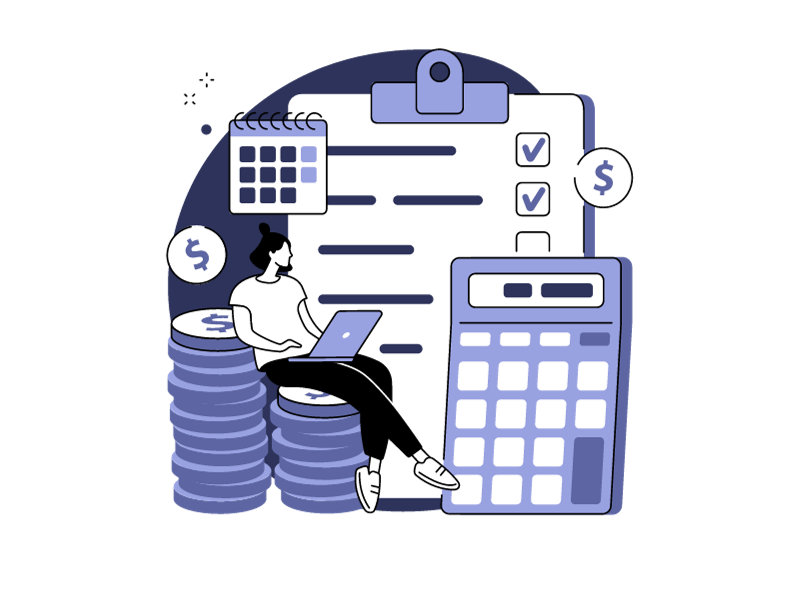

Every time you go shopping, you spend a certain amount on average. This amount is known as the average order value (AOV). For a company, understanding and optimizing this figure can have a huge impact. AOV reveals valuable information about your customers’ buying behavior: by analyzing this data, you can spot trends, which products are the most popular, at what times of the day or year sales boom, and what types of purchases your customers make most often. AOV is also an excellent indicator for evaluating the effectiveness of your marketing campaigns. If a campaign leads to an increase in your store’s AOV, that means it’s encouraging your customers to spend more! You can also identify opportunities to improve the customer experience. For example, if your customers often buy complementary products, it may make sense to offer them in bundles or to simplify the ordering process for these products. A higher AOV translates directly into higher revenues and profitability. By encouraging customers to spend more with each visit, you can increase your sales without necessarily having to recruit new customers.
WHY CALCULATE YOUR AVERAGE ORDER VALUE?
Knowing your company’s AOV can transform the way you manage your operations and strategies. How can this data help you optimize your actions?
By analyzing the AOV, you can discover your customers’ preferences and buying behaviors. Use this information to personalize their experience, recommend complementary products, or create irresistible offers. The result: happier customers and bigger orders!
AOV helps you better manage your inventory: you’ll know exactly which products are often purchased together, and in what quantities.
A higher AOV means more revenue per transaction. By implementing strategies to increase it, such as cross-selling and upselling, you can boost your profitability without having to attract new customers. It’s a direct and immediate gain!
By accurately analyzing this data, you can assess whether your performance is average, above average, or below average, and adjust your strategies to gain the upper hand.
Knowing and understanding your AOV is therefore essential to maximizing your performance and profitability.
| 💸 Total number of transactions | Total number of transactions completed by customers over a given period |
| 💲 Total revenue ($) | Total amount of sales generated over the same period |
| 📈 Average order value ($) | The average amount spent by a customer per order, calculated by dividing the total revenue by the total number of transactions |
HOW DO YOU CALCULATE AVERAGE ORDER VALUE?
Add up all the revenue generated over a given period, i.e., all sales generated, whether for products, services, or any other type of transaction.
Next, count the total number of transactions. This is the total number of times a sale was made during the same period. Each purchase made by a customer counts as a transaction.
Divide the total sales by the number of transactions: this will give you the average amount spent by each customer on each transaction.


OUR TIPS FOR OPTIMIZING AVERAGE ORDER VALUE
Looking to boost your sales significantly? Increasing your customers’ average order values is an excellent strategy for achieving this.
- Offer unmissable bundles
Imagine your customers’ delight when they discover complementary product bundles at attractive prices. Whether it’s an electronic device with its accessories or beauty products in a kit, these bundled offers are a way of adding value to their purchase while increasing the total amount of the order.
- Capitalize on cross-selling and upselling
Have you ever recommended an additional product that would perfectly complement your customer’s main purchase? Or suggested a higher-end version of the item they're thinking of buying?
- Offer free shipping over a certain amount
Who doesn’t love the words “free shipping?” By offering this option above a certain amount, you encourage your customers to add a few more items to their cart to reach that threshold. It’s a win-win situation: they save on delivery costs, and you increase your AOV!
Find more tips in our FAQ just below!
AVERAGE ORDER VALUE FAQ
What is a company’s average order value?
Average order value is a key measure for any business. It represents the average amount spent by a customer on a transaction. In other words, it’s the average amount each customer spends on each visit. This data makes it possible to understand customer buying habits, evaluate sales performance, and implement strategies to increase revenues.
How do you calculate average order value?
Calculating average order value is fairly straightforward. Simply divide total sales by the total number of transactions over a given period. For example, if your company generates sales of $10,000 with 200 transactions over the course of a month, the average order value is $10,000 / 200 transactions = $50. This calculation gives you a clear idea of how much each customer spends on average on each purchase.
How do you calculate a restaurant’s average order value?
For a restaurant, calculating average order value follows the same principle, with a few nuances. First, you need to total up the revenue generated by all sales (dishes, drinks, desserts, etc.) over a given period. Then divide this figure by the total number of invoices or bills/checks issued during that period. For example, if your restaurant generates sales of $30,000 over a month with 600 bills, the average order value is $30,000 / 600 bills = $50.
How do you improve average order value?
- Create enticing loyalty programs
Loyalty programs are the perfect way to reward your most loyal customers. Offer them points or discounts that they can accumulate and use for future purchases. The more they spend, the more they earn, and the more likely they are to return.
- Use the power of personalized recommendations
Personalized recommendations can work wonders. By suggesting products based on your customers’ previous purchases or preferences, you show them that you know them and care about offering them what’s right for them.
- Offer flash sales and limited-time promotions
Flash sales and limited-time promotions create a sense of urgency. By offering special discounts for a short period of time, you encourage your customers to buy faster and add a few more items to their cart.
- Improve the shopping experience in-store and online
Making the shopping experience a pleasant one is essential to improving the average order value and conversion rate. Make sure that your products are well presented, your descriptions are clear and the buying process is smooth. Organize exclusive customer events.
Who doesn't love being invited to an exclusive event? Invite your customers to private sales or product launches.
- Use email marketing strategically
Personalized emails can really make a difference. Send special offers, product recommendations or sales information to your customers.
- Offer additional paid services
Offer additional services such as gift wrapping, product customization, or extended warranties. These little extras can easily increase the total amount of their cart, while improving customer satisfaction.
Create your online store with Wizishop
Access, browse and test all of our features with our 7-day trial, no strings attached





